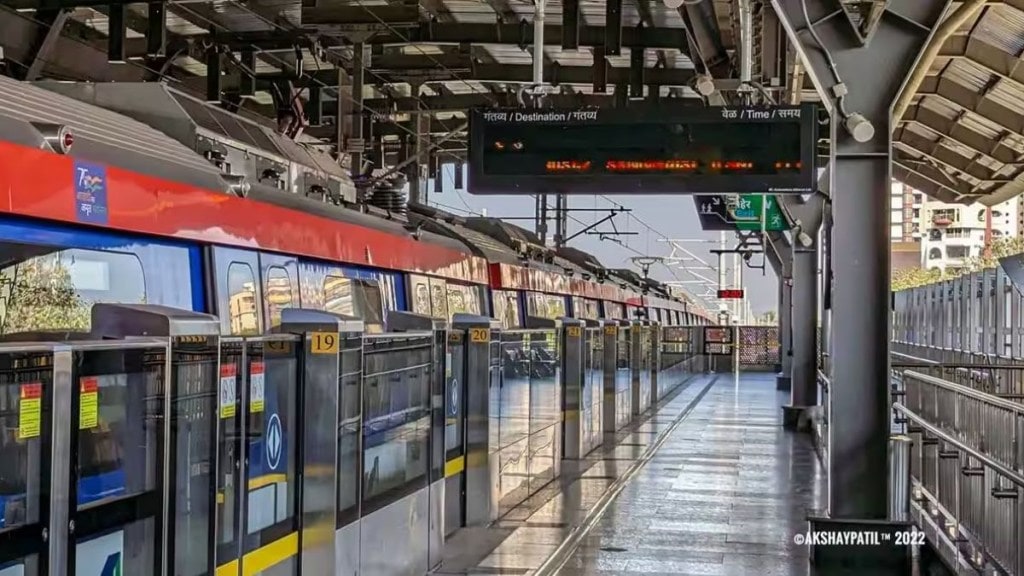As Mumbai received incessant rainfall on Thursday (July 20), submerging railway tracks and affecting suburban-train services and the movement of vehicles, the residents of the financial capital of India turned to the Mumbai Metro.
According to Maha Mumbai Metro Operation Corporation Limited (MMMOCL), this resulted in Mumbai Metro Lines 2A & 7 reporting a record single-day ridership of 2.14 lakh as Metro services ran on time without any major disruption on Thursday.
As per the data released by the corporation, the number of metro commuters rose by 2,000 from the daily average of 2.12 lakh on the 2A and 7 Metro Lines.
Gundavali and Andheri West stations which connect with the Western and Central Railway via Western Express Highway on Metro Line 1 (Versova-Andheri) draw more ridership compared to other stations on these elevated lines, an official highlighted.
All about Mumbai Metro Services
Metro Lines 2A and 7 of the Mumbai Metro have as many as 30 stations.
The Line 2A corridor is an 18.6-km fully elevated stretch from Dahisar East to D N Nagar in Andheri West. The travel time of this corridor is about 40 minutes and it comprises 17 stations — Andheri (West), Lower Oshiwara, Oshiwara, Goregaon (West), Pahadi Goregaon, Lower Malad, Malad (West), Valnai, Dahanukarwadi, Kandivali (West), Pahadi Eksar, Borivali (West), Eksar, Mandapeshwar, Kandarpada, Upper Dahisar and Dahisar (East).
While Line 7 of Mumbai Metro services is a 16.5-km fully elevated stretch and the travel time will be 35 minutes. This corridor runs parallel to the Western Express Highway and has a total of 13 stations – Gundavali, Mogra, Jogeshwari (East), Goregaon (East), Aarey, Dindoshi, Kurar, Akurli, Poisar, Magathane, Devipada, Rashtriya Udyan and Ovaripada.
The MMMOCL operates these Metro trains from 6 am to 10.30 pm with a frequency of one in eight minutes during peak hours and 10 minutes during non-peak hours.

